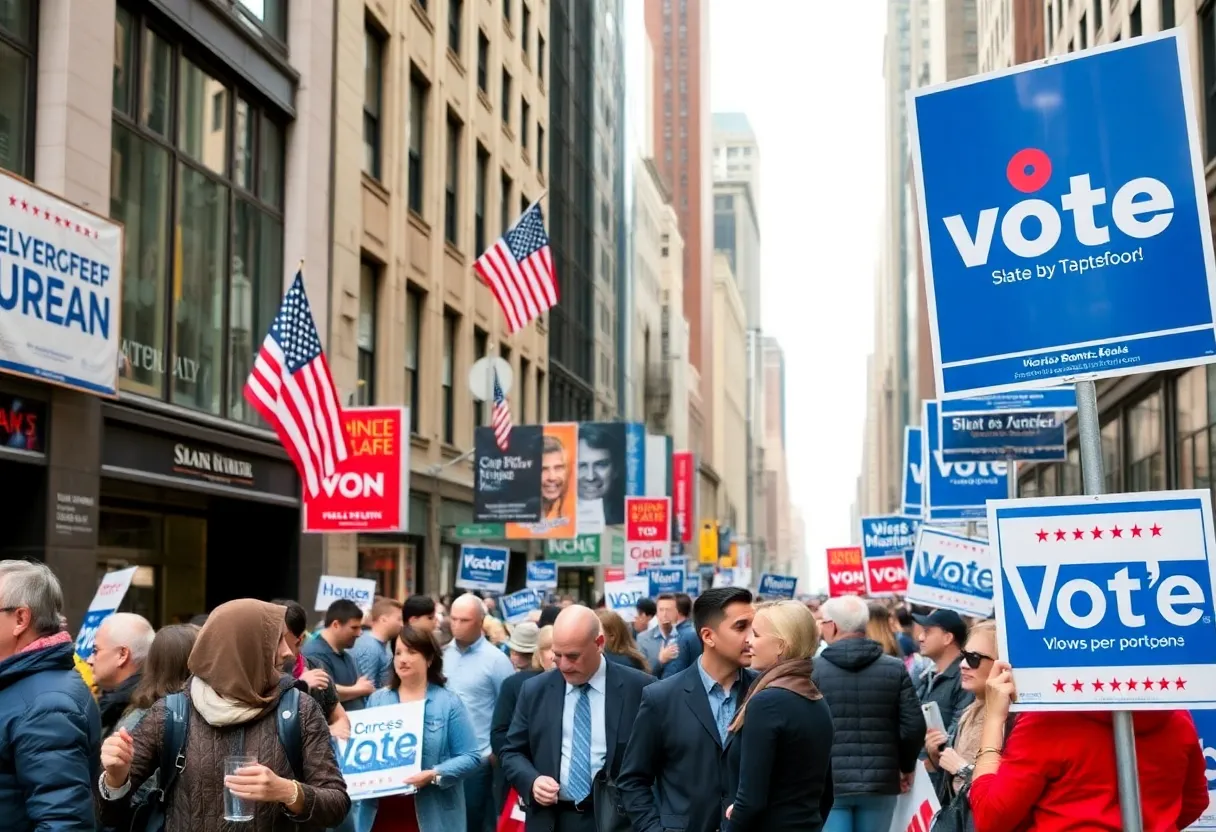News Summary
Small businesses across the U.S. are preparing for significant price hikes following recently announced tariffs by President Trump on various imports. Retailers, particularly those relying on imported goods, fear that rising operational costs will lead to higher prices for consumers. As tensions around trade policy continue, many business owners express uncertainty about the future impacts of these tariffs, which may strain customer relationships and contribute to cautious consumer spending habits. The overall economic outlook remains precarious as businesses anticipate challenges ahead.
New York – Small businesses across the United States are bracing for significant price increases as a result of newly announced tariffs by President Donald Trump. These tariffs, implemented on a range of imports, are part of broader efforts by the administration to rebuild the U.S. economy and mitigate the impacts of globalization. The retail sector, especially small businesses that rely heavily on imported goods, concerns over rising costs are expected to translate into higher prices for consumers.
Store managers and business owners report consistent increases in their operational costs, a trend that has already begun to strain customer relationships. For instance, Ian Anderson, manager of the UK grocery store Tea and Sympathy located in Manhattan, has observed marked surges in business expenses. Shopkeepers in affluent urban areas have noted that upcoming tariffs could further exacerbate these financial pressures.
The increase in tensions surrounding tariffs and trade policy is not a new issue; it has roots going back to the 2008 financial crisis, compounded by previous tariffs under the Trump administration, the COVID-19 pandemic, and ongoing inflation. Many small business owners express uncertainty regarding whether the current tariffs will remain in place or serve merely as a negotiating tactic in international trade discussions. However, Treasury Secretary Scott Bessent has advised other nations to refrain from retaliatory measures against U.S. tariffs, which could escalate the problem.
The trade measures include a 10% levy on imports from the UK and varying rates on European goods that will add further burdens to businesses such as Myers of Keswick, a UK grocery retailer. For these small businesses, passing on costs to consumers is proving challenging, as evident from the substantial price hikes on products like chocolate. For example, a shortcake priced at £2.25 is now nearing $6.95, presenting a tough scenario for customer retention amidst price sensitivity.
Many small businesses are already facing cautious consumer spending habits, leading to fears of a potential recession. With a clothing retailer experiencing customer backlash when attempting to return items subjected to a 25% tariff on goods going to Canada, the impacts of tariffs on consumer sentiment are manifesting in real-time. Store owner John Kaliabakos indicated that while his business may temporarily absorb these extra costs, a point will inevitably be reached where price increases become unavoidable.
Furthermore, high-end retailers in metropolitan areas like Manhattan are predicting that tariffs will contribute to elevated prices in luxury items, posing a risk to their sales volumes. Anderson has noted a prevalent negativity towards Trump’s policies among customers, who are vocalizing their frustrations with the situation.
The looming tariffs are also affecting existing contracts and planned renovations, making it difficult for businesses to manage financial projections and strategies. Owners fear that even if tariffs are lifted in the future, they may not see a corresponding decrease in prices, as market prices often remain high post-tariff removals.
A recent survey pointed to a nearly unanimous opposition to tariffs among small business owners, citing the unpredictability and financial stress they induce. Legal challenges regarding tariffs are ongoing, with a federal court recently blocking some of Trump’s earlier tariffs on grounds of presidential authority, adding to the uncertainty that surrounds the trading landscape.
The fear among small business owners is palpable, as many worry that sustained high tariffs could lead to mass layoffs and even closures, with significant repercussions for the job market. Experts contend that persistent trade barriers will undermine consumer confidence and spending, placing additional strain on the broader economy.
Logistics are also being affected, creating hurdles in planning for international shipping and customer orders as businesses race to adapt to the shifting tariff landscape. Uncertain future trade agreements with other nations complicate matters further for small businesses trying to devise effective pricing and supply chain strategies.
As the situation develops, calls from business leaders and advocacy groups like the U.S. Chamber of Commerce for policymakers to prioritize free trade over reliance on tariffs are increasingly vocal, seeking stable environments that support economic growth rather than instability.
Deeper Dive: News & Info About This Topic
- CBS News: Tariffs on China and Vietnam
- Wikipedia: Tariff
- Hudson Valley Post: Trump Tariffs Costing Jobs
- Google Search: Trump tariffs
- New York Times: Trump’s China Tariffs
- Google Scholar: Trump tariffs
- USA Today: Businesses Reshore Production
- Encyclopedia Britannica: Tariffs
- Time: Trump Tariffs Blocked
- Google News: Trump tariffs impact








